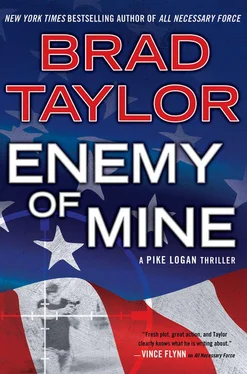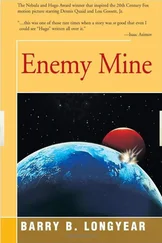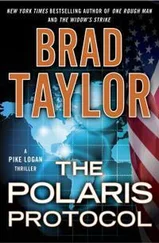Brad Taylor - Enemy of Mine
Здесь есть возможность читать онлайн «Brad Taylor - Enemy of Mine» весь текст электронной книги совершенно бесплатно (целиком полную версию без сокращений). В некоторых случаях можно слушать аудио, скачать через торрент в формате fb2 и присутствует краткое содержание. Жанр: Триллер, на английском языке. Описание произведения, (предисловие) а так же отзывы посетителей доступны на портале библиотеки ЛибКат.
- Название:Enemy of Mine
- Автор:
- Жанр:
- Год:неизвестен
- ISBN:нет данных
- Рейтинг книги:4 / 5. Голосов: 1
-
Избранное:Добавить в избранное
- Отзывы:
-
Ваша оценка:
- 80
- 1
- 2
- 3
- 4
- 5
Enemy of Mine: краткое содержание, описание и аннотация
Предлагаем к чтению аннотацию, описание, краткое содержание или предисловие (зависит от того, что написал сам автор книги «Enemy of Mine»). Если вы не нашли необходимую информацию о книге — напишите в комментариях, мы постараемся отыскать её.
Enemy of Mine — читать онлайн бесплатно полную книгу (весь текст) целиком
Ниже представлен текст книги, разбитый по страницам. Система сохранения места последней прочитанной страницы, позволяет с удобством читать онлайн бесплатно книгу «Enemy of Mine», без необходимости каждый раз заново искать на чём Вы остановились. Поставьте закладку, и сможете в любой момент перейти на страницу, на которой закончили чтение.
Интервал:
Закладка:
“He had me make the stamp, but I didn’t use it in the passport. He took the stamp with him.”
Lucas considered this twist. Forging the Yemen visa made sense, because, while a Saudi citizen could obtain one free of charge upon entering the country, it would mean a greater paper trail, as the Ghost would have to make up a Saudi Arabian address and where he would be staying in Yemen. The UAE visa, on the other hand, was confusing. Why take a stamp?
Because he’s not going to keep that passport. He’s going to get another one, and he doesn’t know which country it will be from.
The Ghost was proving to be pretty damn smart.
“What else did you help him with?”
“Nothing. I swear. Wait, he did ask me for the names of two hawaladars , one for Yemen and one for Dubai.”
Lucas absorbed the information, realizing that the Ghost was laundering whatever money Hezbollah had provided him before they could change their mind and shut off the funding.
Hawala was an ancient banking method still used in the Arab world to transfer money across the globe. Completely outside traditional banking, it simply consisted of two trusted agents in each of the countries in question. One went to the first agent, said they wished to transfer money, and gave the funds to be transferred. The first agent took a commission, gave a code for the second agent, and all that remained was to travel to the second country, meet the agent, present the code, and pick up the money.
The key component was that both agents of the hawala exchange trusted and knew each other. No records were kept on who transferred the money, only on the balance between the two agents. Thus, in order to receive the money, a personal meeting would have to occur, where the code would be presented. A meeting that Lucas could intercept.
“Write down the names and addresses of the agents here in Beirut. Both for Yemen and Dubai.”
When Abu Bari had finished, Lucas asked, “Can you make me a new passport? Either United States or a Canadian one?”
“Yes, but it will take time. Both Canada and the United States use electronic chips in their passports now. Impossible for me to forge. The only way to create a new passport now is to use an old one that is still valid, and they are few and far between.”
Shit. Damn anti-terror methods are making it hard to earn a decent living.
Lucas knew all about the electronic chips. They were RFID tags like the one he had used to kill the investigator; each included all relevant information on the passport, including the picture. He knew the United States had gone to them, but didn’t realize that Canada had as well.
The only documents he currently possessed, outside of his authentic personal papers, was the Canadian passport he had used in the Netherlands-and he certainly wasn’t going to hang around to get another.
“All right. I think I’m done here. All I need you to do is write down a sentence on a piece of paper.”
Bari’s eyebrows scrunched together. “What sentence?”
“Just a statement saying you didn’t know you were helping the murderer and want to prove it to the leadership. Write, ‘It was the Ghost. I didn’t know before he came,’ then any other Islamic crap after that you would like, begging forgiveness. I’ll pass it to the leadership and maybe they’ll leave you alone.”
Bari’s hands trembled as he wrote. Perfect. Looks like a dying hand.
Lucas circled around behind him, pulled out his carbon-fiber punch-blade, and patiently waited for him to finish.
When Bari set the pen down, Lucas said, “Move the paper to the shelf in front of you.”
Bari did so, asking, “Why?”
Lucas punched him in the neck with the blade and watched the man writhe on the ground, bleeding out. “Because I didn’t want to get blood on it.”
After the body had quit twitching, Lucas positioned it on the floor with an arm outstretched, holding the pen. He then placed the paper under the hand. He left the computer as it was, with the Ghost’s Saudi passport prominently displayed on the screen.
He knew that any competent forensics team would ascertain in seconds that it was staged, but counted on the bumbling paranoia of Hezbollah not to have the skills or desire to check. With any luck, they’d be chasing the Ghost and save him the effort, freeing him up to secure his retirement.
His security work in this section of the world was done, he knew. No way could he continue anywhere that had the potential for Hezbollah reach. Unfortunately, the Middle East was the last place left. Working anywhere in Europe or South America would put him inside the radar of the United States, which wanted him badly. Africa remained an option, but the thought disgusted him. In truth, he wanted an out, and Hezbollah had provided it.
Inside the Martyrs’ headquarters, before he’d killed the boy, he’d found out everything he could on the Ghost and had learned something very, very interesting. The Middle East envoy was bringing a large sum of money to the peace talks. Money that was black and completely in cash. Money that would set him up for the rest of his life, sitting on a beach without an extradition treaty. All he had to do was prevent the Ghost from killing the envoy before the meeting.
So he could do it.
31
The Ghost picked up his battered suitcase and entered the bustling flow of people headed to customs. The Sanaa airport overflowed with people of all types, including a surprising number of Westerners, most likely journalists trying to figure out the latest spasm that would rock the turbulent country.
The airport was on the verge of being decrepit, with grimy walls and listless guards who apparently were paid to simply stare at the floor.
He approached the immigration desk, worried that his dialect would give him away. He had no real knowledge of how someone from Saudi Arabia spoke and hoped the man at the counter didn’t either.
His fears were unfounded, as the official took a cursory glance at his visa, stamped his passport, and waved him through.
He exited the airport and was accosted by a swarm of taxi drivers standing next to a smorgasbord of different vehicles, all with white bodies and orange quarter panels. He selected one and asked the driver to take him to the old city.
His first task was to retrieve his money from the hawaladar before the man’s business closed for the day. After that, he would need to find a suitable replacement passport.
He ignored the bleating horns and the maniacal swerving of the cab driver, lost in his own thoughts. He had a lot of preparations and fewer than four days to accomplish them.
He hadn’t realized the cab had pulled over until the driver rotated completely around and pointed to a massive stone archway crossing the road. “Bab Al-Yemen.”
He paid with his dwindling reserve of money, took his suitcase, and gave the name of a travel agency, asking where it was. All he had been told was it was near the gate to the old city. The driver shrugged, saying he had no idea.
On his third attempt, he found someone who knew the location and was happy to see it was less than a hundred meters away, across the square.
The hawala system was usually no more than a form of extra income. A way to make a commission in conjunction with a primary business. In this case, the hawaladar owned a travel agency. The Ghost entered and ignored the proprietor’s efforts at conversation. He showed his passport, recited the six-digit code, and walked away with a thick wad of Yemeni rials. No signature, no paperwork of any kind.
He entered the old city through the great stone gate and found a hotel, a rundown affair that catered to the lower income. The room consisted of nothing more than a mattress on the floor, a dangling light bulb, and a mirror on the wall, but it was clean. He left his luggage and began to wander the old city, looking for a suitable target.
Читать дальшеИнтервал:
Закладка:
Похожие книги на «Enemy of Mine»
Представляем Вашему вниманию похожие книги на «Enemy of Mine» списком для выбора. Мы отобрали схожую по названию и смыслу литературу в надежде предоставить читателям больше вариантов отыскать новые, интересные, ещё непрочитанные произведения.
Обсуждение, отзывы о книге «Enemy of Mine» и просто собственные мнения читателей. Оставьте ваши комментарии, напишите, что Вы думаете о произведении, его смысле или главных героях. Укажите что конкретно понравилось, а что нет, и почему Вы так считаете.












